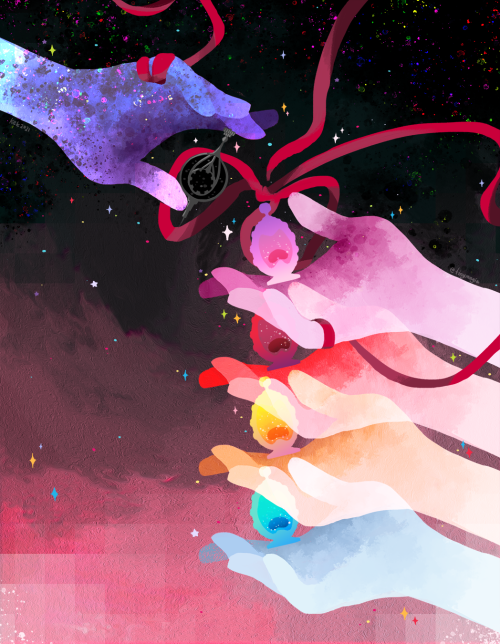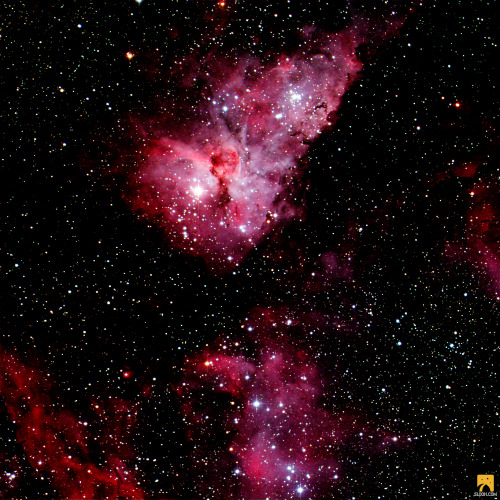Now That Most Of Us Are At Home, I Thought This Could Be Useful To The Ones Who Aren't that Used To




now that most of us are at home, i thought this could be useful to the ones who aren't that used to learning material on their own and aren’t sure where to start, or which order of steps to follow. happy studying! 💗
studygram
More Posts from Mystarypi and Others

This is the Orion Nebula! ✨✨✨
There are around 700 newborn stars in this nebula and more are being born each year! This is without a doubt, the most photographed object in the night sky due to its bright and radiant colors. You might even be able to see it without a telescope (in good weather)! 😍😍😍
Taken by me (Michelle Park) using the Slooh Canary Two telescope on September 14th, 2020 at 5:36 UTC.

Lagoon Nebula, M8, in Sagittarius ❤
Taken by me (Michelle Park) using the Slooh Canary Two Telescope, taken in August 2018.

M16, Eagle Nebula

despite everything, you still love madoka magica (happy 10th anniversary!!)

This is the Eta Carinae Nebula! ✨✨✨
Due to its eruption in the 1840s, the mass of this stunning nebula has been challenging to measure. The colorful dust also dims the star’s ultraviolet and visible light by reradiating the shorter, more energetic light through longer wavelengths like infrared light! ❤❤❤
Taken by me (Michelle Park) using the Slooh Canary Two telescope on February 1st, 2022 at 5:32 UTC.



The Silver Coin Galaxy 🌌
My favorite galaxy by far. This starburst spiral galaxy, also known as NGC 253, is undergoing massive star formation and thus is incredibly bright ✨
Taken by me (Michelle Park) using the Slooh Canary Two telescope on October 20th, 2019.
My favorite nebula ever! I always use this for my profile pictures 😂😂😂
Check out more on my astrophotography blog: mystarypi-astronomy.tumblr.com!

Lagoon Nebula, M8, in Sagittarius ❤
Taken by me (Michelle Park) using the Slooh Canary Two Telescope, taken in August 2018.

This is the Dumbbell Nebula! ⏳⏳⏳
Similar to many other planetary nebulae, the Dumbbell Nebula has a pattern of dark and bright knots made of gas and dust. These beautiful, ornate features are formed when stellar winds don’t fully blow away the nebula’s material and they leave a trail behind! 💘💘💘
Taken by me (Michelle Park) using the Slooh Canary Two telescope on October 17th, 2021 at 00:00 UTC.
One of my favorite nebulae ♥♥♥ It looks so beautiful 🥰🥰🥰

NGC 6357: Cathedral to Massive Stars via NASA https://ift.tt/31D4Lqn
How massive can a normal star be? Estimates made from distance, brightness and standard solar models had given one star in the open cluster Pismis 24 over 200 times the mass of our Sun, making it one of the most massive stars known. This star is the brightest object located just above the gas front in the featured image. Close inspection of images taken with the Hubble Space Telescope, however, have shown that Pismis 24-1 derives its brilliant luminosity not from a single star but from three at least. Component stars would still remain near 100 solar masses, making them among the more massive stars currently on record. Toward the bottom of the image, stars are still forming in the associated emission nebula NGC 6357. Appearing perhaps like a Gothic cathedral, energetic stars near the center appear to be breaking out and illuminating a spectacular cocoon.
(Published August 30, 2020)
-
 deborahkerrdyke reblogged this · 2 weeks ago
deborahkerrdyke reblogged this · 2 weeks ago -
 itmonbu liked this · 1 month ago
itmonbu liked this · 1 month ago -
 toothsplace liked this · 1 month ago
toothsplace liked this · 1 month ago -
 joystudiesss reblogged this · 2 months ago
joystudiesss reblogged this · 2 months ago -
 joystudiesss liked this · 2 months ago
joystudiesss liked this · 2 months ago -
 manistal reblogged this · 2 months ago
manistal reblogged this · 2 months ago -
 manistal liked this · 2 months ago
manistal liked this · 2 months ago -
 totorostudies reblogged this · 2 months ago
totorostudies reblogged this · 2 months ago -
 rakelrambles liked this · 2 months ago
rakelrambles liked this · 2 months ago -
 tongsampahku liked this · 2 months ago
tongsampahku liked this · 2 months ago -
 student-angel liked this · 2 months ago
student-angel liked this · 2 months ago -
 alexie-blog liked this · 2 months ago
alexie-blog liked this · 2 months ago -
 bitchybananabird reblogged this · 2 months ago
bitchybananabird reblogged this · 2 months ago -
 bitchybananabird liked this · 2 months ago
bitchybananabird liked this · 2 months ago -
 nerdyishsblog liked this · 2 months ago
nerdyishsblog liked this · 2 months ago -
 heloisestonewall liked this · 2 months ago
heloisestonewall liked this · 2 months ago -
 math-markers reblogged this · 2 months ago
math-markers reblogged this · 2 months ago -
 theoriginalpsyduck reblogged this · 2 months ago
theoriginalpsyduck reblogged this · 2 months ago -
 theoriginalpsyduck liked this · 2 months ago
theoriginalpsyduck liked this · 2 months ago -
 yellowzel liked this · 2 months ago
yellowzel liked this · 2 months ago -
 forpleasureseekers reblogged this · 2 months ago
forpleasureseekers reblogged this · 2 months ago -
 forpleasureseekers liked this · 2 months ago
forpleasureseekers liked this · 2 months ago -
 stargazerbibi liked this · 2 months ago
stargazerbibi liked this · 2 months ago -
 mynameisfate reblogged this · 2 months ago
mynameisfate reblogged this · 2 months ago -
 mynameisfate liked this · 2 months ago
mynameisfate liked this · 2 months ago -
 oukamomochi reblogged this · 2 months ago
oukamomochi reblogged this · 2 months ago -
 nelyastudies liked this · 2 months ago
nelyastudies liked this · 2 months ago -
 tajgernewdemon liked this · 2 months ago
tajgernewdemon liked this · 2 months ago -
 dokush-a liked this · 2 months ago
dokush-a liked this · 2 months ago -
 sirmrman reblogged this · 2 months ago
sirmrman reblogged this · 2 months ago -
 spritofjoy liked this · 2 months ago
spritofjoy liked this · 2 months ago -
 dancinglikebutterfly reblogged this · 2 months ago
dancinglikebutterfly reblogged this · 2 months ago -
 yamiyoristudies reblogged this · 2 months ago
yamiyoristudies reblogged this · 2 months ago -
 thisuseristrying liked this · 2 months ago
thisuseristrying liked this · 2 months ago -
 past-elreality liked this · 2 months ago
past-elreality liked this · 2 months ago -
 cbmoralesthoughts liked this · 2 months ago
cbmoralesthoughts liked this · 2 months ago -
 rabbitstudy reblogged this · 2 months ago
rabbitstudy reblogged this · 2 months ago -
 warmthripples5562 reblogged this · 4 months ago
warmthripples5562 reblogged this · 4 months ago -
 calmnessisasuperpower reblogged this · 6 months ago
calmnessisasuperpower reblogged this · 6 months ago -
 meikkos reblogged this · 10 months ago
meikkos reblogged this · 10 months ago -
 jenniferyruegas reblogged this · 11 months ago
jenniferyruegas reblogged this · 11 months ago -
 flothestormqueen reblogged this · 11 months ago
flothestormqueen reblogged this · 11 months ago -
 flothestormqueen liked this · 11 months ago
flothestormqueen liked this · 11 months ago -
 thekamore liked this · 11 months ago
thekamore liked this · 11 months ago -
 lisastudiesmaths liked this · 1 year ago
lisastudiesmaths liked this · 1 year ago -
 lilomedjourney liked this · 1 year ago
lilomedjourney liked this · 1 year ago -
 padichat reblogged this · 1 year ago
padichat reblogged this · 1 year ago -
 padichat liked this · 1 year ago
padichat liked this · 1 year ago
